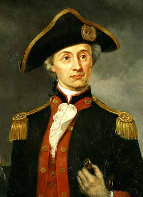
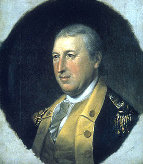
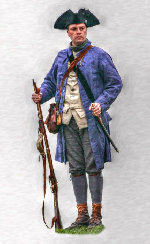
American Military
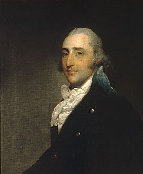
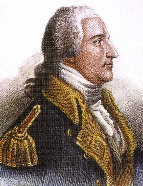
The American Colonial Soldier ~ Two hundred thousand ordinary Americans would fight for freedom during the American Revolution. Most were under the age of 23. Recruiting was difficult; the pay was poor, discipline harsh, & daily life was dull. Although many colonials were motivated by patriotic ideals, incentives such as cash & land were still required & ultimately recruiters were forced to use the draft. Throughout the war, the army suffered from a lack of food & supplies, brutal weather, unsanitary conditions & sickness. Medical knowledge was primitive & often did more harm than good. Stiil, despite these hardships, training & discipline transformed these civilians into skilled soldiers that would ultimately defeat the mightiest army in the world. Their sacrifice for America's freedom can not be over-appreciated.
General Benedict Arnold ~ Parodox of the Revolution ~ Hero of Saratoga whose name would become synonomous with treason. Arnold was a cunning & brave military tactition who distinguished himself at the battle of Ticonderoga & the Battles of Saratoga where he suffered severe leg injuries. Despite his successes on the battlefield he was continually passed over for promotion as other officers claimed credit for his accomplishments. Military rivals brought charges of corruption & other malfeasance. Though acquitted, he was forced to endure multiple formal inquiries & became more & more disgruntled. He was given command of the fort at West Point & plotted to surrender it to the British. The plot was exposed & he fled to the British & led battles in Virginia & Connecticut. In 1782 Arnold moved to London where he died in 1791.
An officer of the Continental Navy, Capt. John Paul Jones joined the American cause with daring raids along the British coast. While engaged with the HMS Serapis, his ship, the Bonhomme Richard, began taking on water & fires broke out on board. The British commander asked Jones if he was ready to surrender, to which Jones replied, "I have not yet begun to fight!" In the end, it was the British commander who surrendered. Jones' courage is best displayed in his statement, "I wish to have no connection with any ship that does not go fast for I intend to go in harms' way."
Horatio Gates was probably Washington's most despicable general. He took credit for the victory at Saratoga & attempted to unseat Washington as Commander in Chief during the Conway Cabal. His overly cautious leadership style earned him the nickname "Granny Gates." His best accomplishment was to cover 170 miles on horseback in 3 days retreating from the British at the Battle of Camden.
General Charles Lee ~ Repulsed a British attempt to take Charleston in 1776 boosting his standing with Congress. Later that year he was captured & released during a prisoner exchange in 1778. His failed assault & indecisiveness at the Battle of Monmouth led to his court martial ending his military career. He died in 1782 in Philadelphia at the age of 50.
Click image to enlarge




